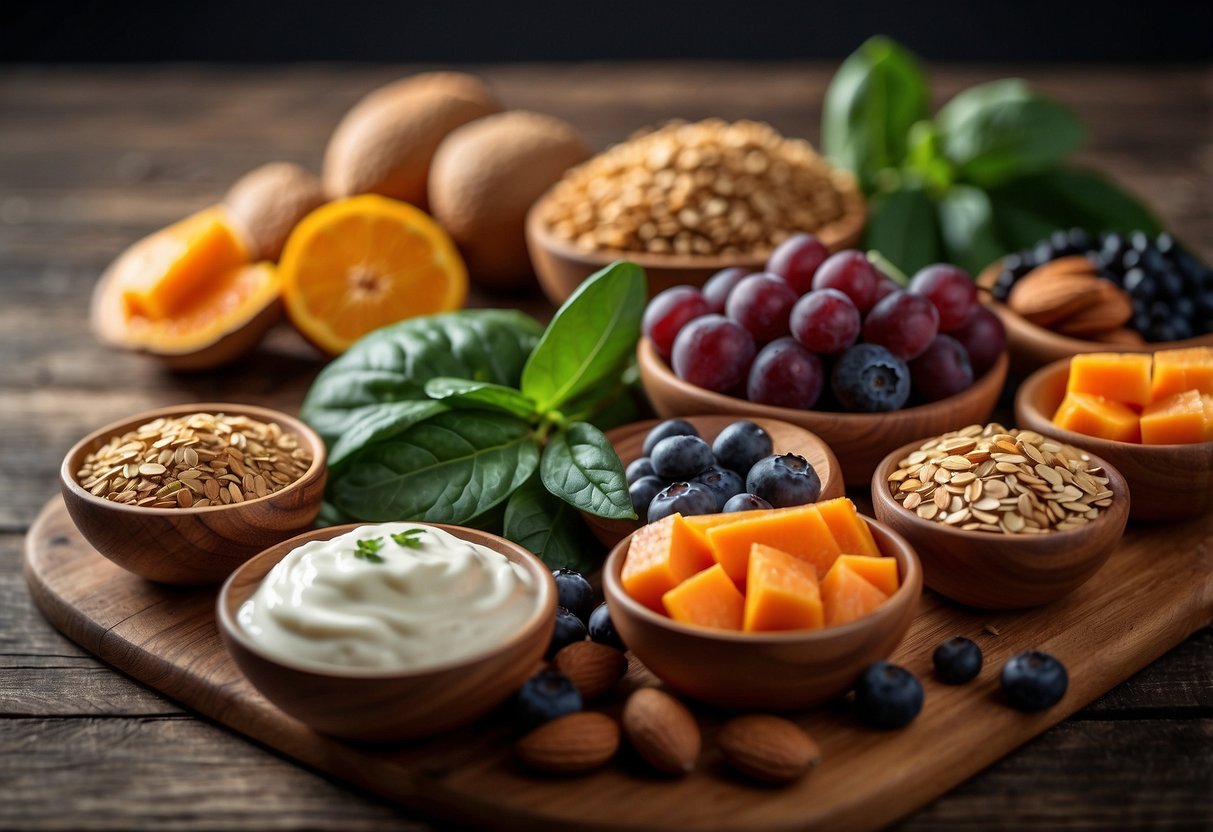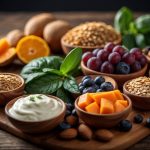
Cruciferous Vegetables: Cancer-Fighting Compounds
Cruciferous vegetables are renowned for their potential role in cancer prevention due to their unique phytochemicals. This section focuses on the most notable members of this vegetable family, highlighting their significant health benefits and the compounds that contribute to their cancer-fighting properties.
Broccoli and Cauliflower
Broccoli and cauliflower are packed with glucosinolates, compounds that break down into biologically active forms like sulforaphane and indole-3-carbinol. These compounds have been studied for their ability to protect cells from DNA damage. They also have anti-inflammatory properties that play a crucial role in cancer prevention.
Sulforaphane, found abundantly in broccoli, has shown promise in inhibiting the growth of cancer cells in various studies. It enhances the elimination of potential carcinogens from the body. The high fiber content in both vegetables supports digestive health, further contributing to overall well-being and cancer risk reduction.
Brussels Sprouts and Cabbages
Brussels sprouts and cabbages carry a robust nutritional profile with high levels of vitamins C and K, and are a substantial source of dietary fiber. These vegetables also possess significant amounts of glucosinolates, similar to other cruciferous vegetables.
The metabolic products of glucosinolates, such as isothiocyanates, have been linked to the modulation of enzymes involved in detoxifying carcinogens. Regular consumption of Brussels sprouts and cabbages can enhance the body’s defense mechanisms against oxidative stress and inflammation, both of which are closely associated with cancer development.
The dense nutrient profile of these vegetables also supports immunity, making them an integral part of a cancer-preventive diet.
Fermented Foods: Probiotics for Gut Health
Fermented foods like kefir, yogurt, sauerkraut, and kimchi are rich in probiotics, which are essential for maintaining a healthy gut microbiome. These foods can help improve digestive health and boost the immune system.
Kefir and Yogurt
Kefir and yogurt are two of the most well-known fermented dairy products. Both contain live bacteria cultures that are beneficial for gut health. Kefir is known for its diverse range of probiotic strains, often containing more than yogurt.
Yogurt, on the other hand, typically contains Lactobacillus and Bifidobacterium. Both help in breaking down lactose, making these products easier to digest for those with lactose intolerance. Regular consumption aids in balancing gut flora and can alleviate symptoms of irritable bowel syndrome.
Kefir also has a slightly tangy flavor and a more liquid consistency compared to yogurt. It is often made by fermenting milk with kefir grains, which are a combination of bacteria and yeast. Yogurt is usually thicker and can be consumed plain or with added fruits and honey.
Sauerkraut and Kimchi
Sauerkraut and kimchi are fermented vegetables rich in probiotics. Sauerkraut is made from fermented cabbage and is a traditional German dish. It is high in fiber, vitamins C and K, and beneficial enzymes. This food supports healthy digestion and enhances immune function.
Kimchi, a staple in Korean cuisine, is made from fermented vegetables like cabbage, radishes, and seasonings. This spicy and tangy food is rich in nutrients, antioxidants, and probiotics. Kimchi contains lactic acid bacteria, which are excellent for gut health.
Both sauerkraut and kimchi are low-calorie foods that can be easily incorporated into various dishes. They can serve as a side dish or topping, adding both flavor and nutritional benefits. Regular intake can contribute to a balanced gut microbiome and better overall digestive health.
Superfood Recipes for Daily Meals
Incorporating superfoods into daily meals can boost nutritional intake and promote overall health. Below are some practical and delicious recipes.
Breakfast Ideas
Starting the day with a nutrient-rich breakfast can set a positive tone. A popular choice is a blueberry smoothie bowl. Blend a cup of blueberries with half a banana, a handful of spinach, and almond milk. Top with chia seeds, sliced almonds, and fresh berries.
Another option is quinoa porridge. Cook quinoa in coconut milk and sweeten with a bit of honey. Add mixed berries, a sprinkle of flax seeds, and a dash of cinnamon for a hearty meal.
For those who prefer something savory, avocado toast with poached eggs is an excellent choice. Simply mash a ripe avocado on whole-grain toast, season with salt and pepper, and top with a poached egg.
Lunch and Dinner Options
Superfoods can elevate lunch and dinner, making each meal both nutritious and delicious. Kale and quinoa salad is a vibrant dish. Combine cooked quinoa with chopped kale, cherry tomatoes, and cucumber. Toss in a lemon-tahini dressing for added flavor.
Salmon with a side of steamed broccoli is a classic. Season the salmon with herbs like dill and bake until cooked. Serve with broccoli and a squeeze of lemon.
For a plant-based option, lentil and sweet potato stew is hearty and satisfying. Cook lentils with diced sweet potatoes, carrots, and celery in vegetable broth. Season with turmeric and cumin, and serve warm.
Adding these superfoods to daily meals can be straightforward and enjoyable, providing essential nutrients and enhancing overall well-being.



